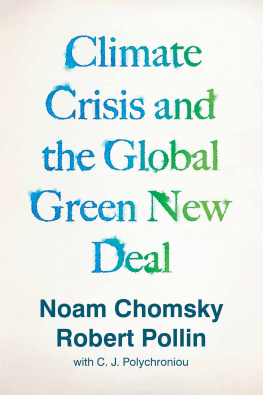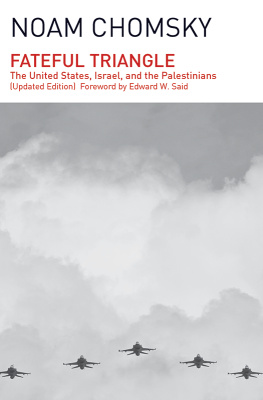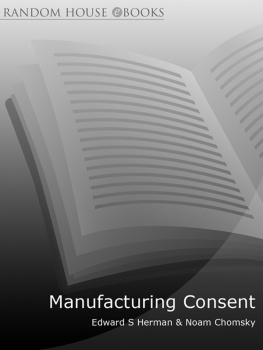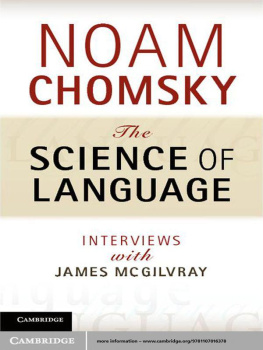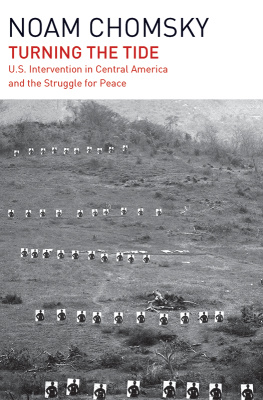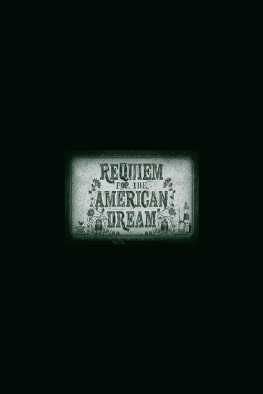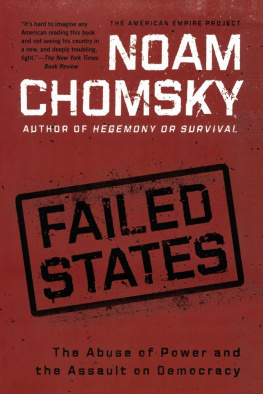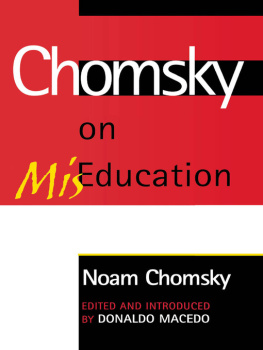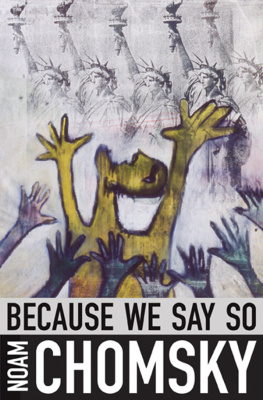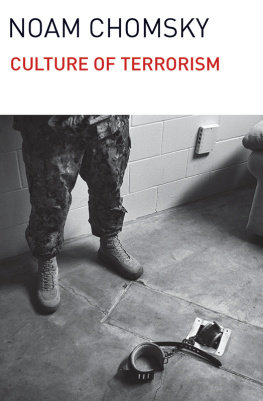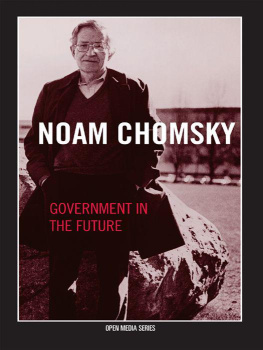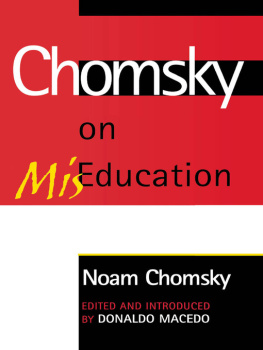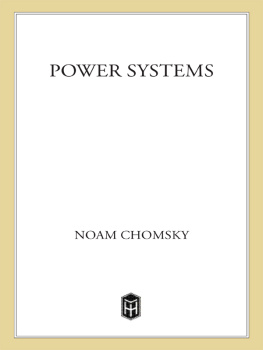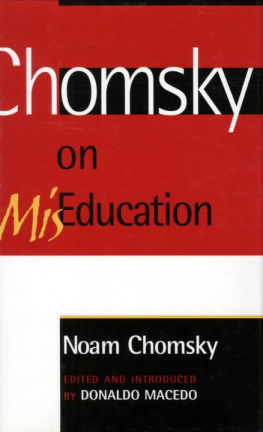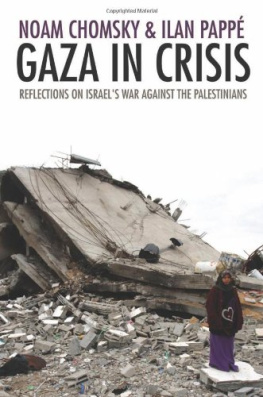Noam Chomsky - Climate Crisis and the Global Green New Deal
Here you can read online Noam Chomsky - Climate Crisis and the Global Green New Deal full text of the book (entire story) in english for free. Download pdf and epub, get meaning, cover and reviews about this ebook. publisher: Lightning Source Inc. (Tier 1), genre: Politics. Description of the work, (preface) as well as reviews are available. Best literature library LitArk.com created for fans of good reading and offers a wide selection of genres:
Romance novel
Science fiction
Adventure
Detective
Science
History
Home and family
Prose
Art
Politics
Computer
Non-fiction
Religion
Business
Children
Humor
Choose a favorite category and find really read worthwhile books. Enjoy immersion in the world of imagination, feel the emotions of the characters or learn something new for yourself, make an fascinating discovery.
- Book:Climate Crisis and the Global Green New Deal
- Author:
- Publisher:Lightning Source Inc. (Tier 1)
- Genre:
- Rating:4 / 5
- Favourites:Add to favourites
- Your mark:
- 80
- 1
- 2
- 3
- 4
- 5
Climate Crisis and the Global Green New Deal: summary, description and annotation
We offer to read an annotation, description, summary or preface (depends on what the author of the book "Climate Crisis and the Global Green New Deal" wrote himself). If you haven't found the necessary information about the book — write in the comments, we will try to find it.
Climate Crisis and the Global Green New Deal — read online for free the complete book (whole text) full work
Below is the text of the book, divided by pages. System saving the place of the last page read, allows you to conveniently read the book "Climate Crisis and the Global Green New Deal" online for free, without having to search again every time where you left off. Put a bookmark, and you can go to the page where you finished reading at any time.
Font size:
Interval:
Bookmark:

CLIMATE CRISIS AND THE
GLOBAL GREEN NEW DEAL
CLIMATE CRISIS AND THE
GLOBAL GREEN NEW DEAL
The Political Economy of Saving the Planet
Noam Chomsky and Robert Pollin,
with C. J. Polychroniou

First published by Verso 2020
Noam Chomsky, Robert Pollin,
C. J. Polychroniou 2020
All rights reserved
The moral rights of the authors have been asserted
1 3 5 7 9 10 8 6 4 2
Verso
UK: 6 Meard Street, London W1F 0EG
US: 20 Jay Street, Suite 1010, Brooklyn, NY 11201
versobooks.com
Verso is the imprint of New Left Books
ISBN-13: 978-1-78873-985-6
ISBN-13: 978-1-78873-987-0 (UK EBK)
ISBN-13: 978-1-78873-986-3 (US EBK)
British Library Cataloguing in Publication Data
A catalogue record for this book is available from the British Library
Library of Congress Cataloging-in-Publication Data
Names: Chomsky, Noam, author. | Pollin, Robert, author.
Title: The climate crisis and the global green new deal : the political economy of saving the planet / Noam Chomsky and Robert Pollin with Chronis Polychroniou.
Description: First edition paperback. | London ; New York : Verso Books, 2020. | Includes bibliographical references and index. | Summary: An inquiry into how to build the political force to make a global Green New Deal a reality Provided by publisher.
Identifiers: LCCN 2020021851 (print) | LCCN 2020021852 (ebook) | ISBN 9781788739856 (paperback) | ISBN 9781788739863 (ebk)
Subjects: LCSH: Green movementPolitical aspects. | Green movementEconomic aspects. | Climate change mitigationPolitical aspects. | Climate change mitigationEconomic aspects. | CapitalismEnvironmental aspects.
Classification: LCC JA75.8 .C46 2020 (print) | LCC JA75.8 (ebook) | DDC 363.738/7461dc2 3
LC record available at https://lccn.loc.gov/2020021851
LC ebook record available at https://lccn.loc.gov/2020021852
Typeset in Adobe Garamond Pro by Hewer Text UK Ltd, Edinburgh
Printed and bound by CPI Group (UK) Ltd, Croydon CR0 4YY
Contents
Since the origins of civilized social order, the human race has faced a full gamut of severe challenges and deadly threats, ranging from famines and natural disasters (floods, earthquakes, volcanic eruptions, and so on) to enslavement and wars. In the first half of the twentieth century, humanity experienced two world wars and the emergence of the greatest genocidal regime ever. Over the second half of the twentieth century, we have lived with the threat of nuclear annihilation hanging over our heads like Damocles sword. As I write in April 2020, we face the global COVID-19 pandemic and accompanying economic collapse. Nobody knows at this point how many people will die as a result of the pandemic. We also cannot yet know how severe will be the subsequent recession. The signs point to a crisis of at least the severity of the 200709 Great Recession and perhaps comparable to the 1930s Depression.
Nonetheless, a strong case can be made that humanity faces its greatest existential crisis ever with climate change. That is, trapped carbon dioxide and other greenhouse gases resulting, first and foremost, from burning oil, coal, and natural gas to generate energy, are raising average temperatures in all regions of the globe. The consequences of a hotter planet include increasing incidences of heat extremes, heavy precipitation, droughts, sea level increases, biodiversity losses, and corresponding impacts on health, livelihoods, food security, water supply, and human security. Meanwhile, climate denialism maintains a strong grip over much of the human race, especially in the United States. This is due in part to the fossil fuel industrys relentless propaganda and obfuscation campaigns over decades. It is also linked to the unlikely outcome of Donald Trump, the Climate-Denier-in-Chief, somehow making it into the White House with his November 2016 election victory over Hillary Clinton. President Trump has gone so far as to declare global warming a hoax and to pull the United States out of the 2015 Paris Climate Agreement, which was endorsed by 195 countries, including the United States under Barack Obama.
Still, one cannot deny the impact that fear of the unknown and the potential loss of jobs may be exerting on people when they resist the reality of global warming. This is exactly why it is so important that any plan to effectively combat the climate crisis must include provisions that ensure workers are able to make a fair transition to a carbon-free economy. More specifically, any version of the widely discussed Green New Deal project must include these priorities:
1. Greenhouse gas emissions reductions will at least achieve the targets set in 2018 by the Intergovernmental Panel on Climate Change, namely a 45 percent reduction in global emissions by 2030 and the attainment of net zero emissions by 2050.
2. Investments to dramatically raise energy efficiency standards and equally dramatically expand the supply of solar, wind, and other clean renewable energy sources will form the leading edge of the transition to a green economy in all regions of the world.
3. The green economy transition will not expose workers in the fossil fuel industry and other vulnerable groups to the plague of joblessness and the anxieties of economic insecurity.
4. Economic growth must proceed along a sustainable and egalitarian path, such that climate stabilization is unified with the equally important goals of expanding job opportunities and raising mass living standards for working people and the poor throughout the world.
A global Green New Deal that includes these four priorities is, in fact, the only viable solution available to us if we hope to avoid the catastrophic repercussions of persistently rising average global temperatures. Given the absence of such a coherent Green New Deal program, all international climate summits that have occurred thus far, including the twenty-fifth UN-sponsored Conference of the Parties (COP25) held in Madrid in December 2019, have failed to put the world onto a viable climate stabilization path. Even the much-celebrated COP21 conference in Paris in 2015 mainly produced another round of ritual inaction. Because of these failures, the world is already hotter by over 1 degree Celsius (1.8 degrees Fahrenheit) above preindustrial levels, and on its way to 1.5C (2.7F) warmer within another decade or two.
The catastrophic consequences that will result from unchecked climate change are described in detail in the analyses found in this book by its two authors, Noam Chomsky and Robert Pollin. Noam Chomsky, of course, has been the worlds leading public intellectual for more than half a century now. He is also the father of modern linguistics. His work in that field has exerted tremendous influence in a wide variety of other fields, including mathematics, philosophy, psychology, and computer science. Robert Pollin is a world-renowned progressive economist who has been a leader fighting on behalf of an egalitarian green economy for more than a decade. He has produced a large number of important publications as well as commissioned studies on implementing Green New Deal programs in countries around the world as well as multiple US states. He also served as a consultant to the US Energy Department on implementing the green investment components of the 2009 American Recovery and Reinvestment Act, the Obama economic stimulus program that included $90 billion in funding for investments in renewable energy and energy efficiency.
Font size:
Interval:
Bookmark:
Similar books «Climate Crisis and the Global Green New Deal»
Look at similar books to Climate Crisis and the Global Green New Deal. We have selected literature similar in name and meaning in the hope of providing readers with more options to find new, interesting, not yet read works.
Discussion, reviews of the book Climate Crisis and the Global Green New Deal and just readers' own opinions. Leave your comments, write what you think about the work, its meaning or the main characters. Specify what exactly you liked and what you didn't like, and why you think so.

